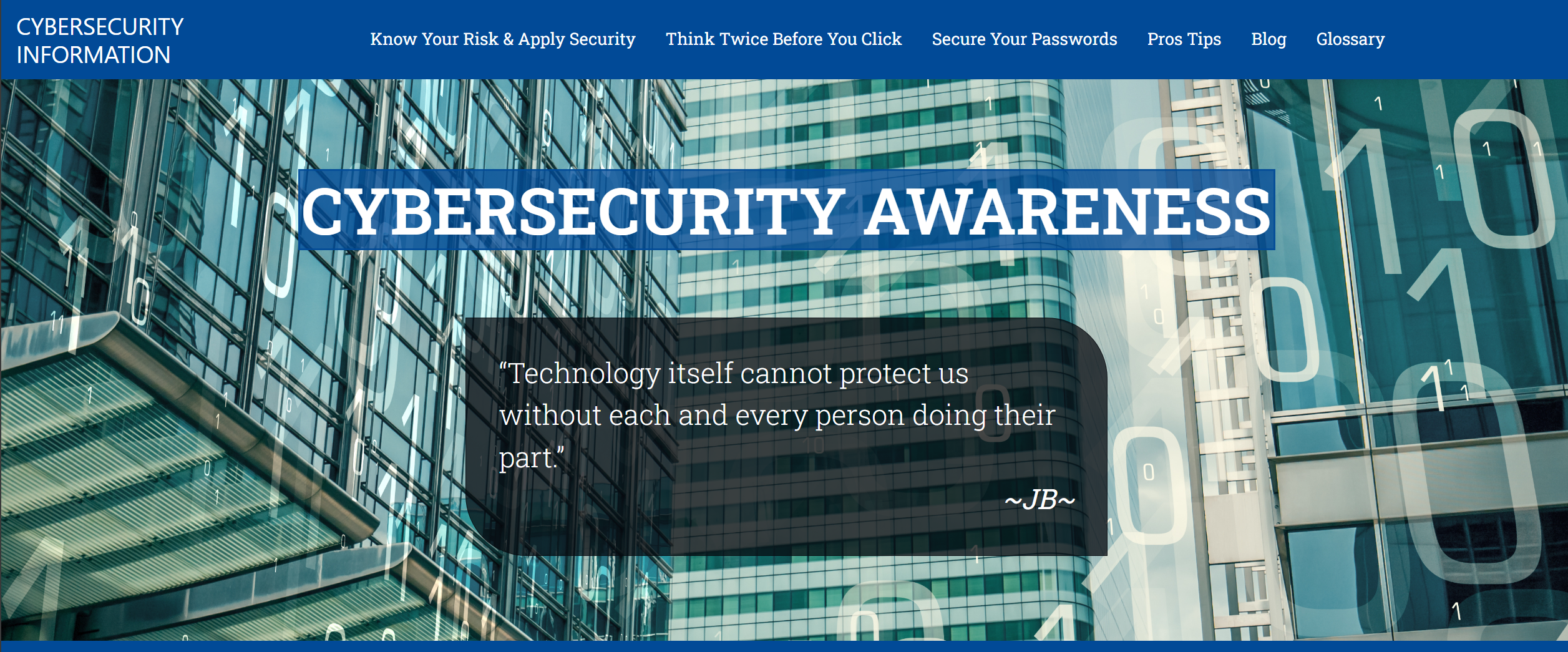Building CyberSecHub: A Mentorship Journey into Cybersecurity Awareness

Introduction and Context
In 2022, I participated in the MassCyberCenter’s Cybersecurity Mentorship Program, working with my mentor to build an accessible cybersecurity awareness website. CyberSecHub was created to help students and community members learn vital digital safety skills in a simple, approachable format. As AI adoption and cyber threats increase, educating everyday users on phishing, password hygiene, and safe browsing practices is more important than ever.
Original site: CyberSecHub.
Project Goals and Collaboration
Our vision was to build a free resource that taught core security concepts in plain language. The site focused on topics such as strong passwords, risk self‑assessments and pro tips for safer browsing. My mentor guided me through scoping the work, prioritising content and ensuring that everything was both accurate and easy for non‑technical readers. We collaborated closely with faculty and staff—including a Web Specialist, Marketing team, Dean, HelpDesk, and Director of IT Services—to gather feedback and refine the material.
This teamwork ensured that the final product appealed to both students and non‑technical users, and mirrored the professionalism expected in academic settings.
Technology and Build Process
CyberSecHub was built as a static site generator using a PHP script during the build stage. The build.php script read templates and created HTML pages such as the home page, secure passwords, and glossary pages. Each build produced only static HTML and assets—no PHP ran on the server—ensuring strong performance and a reduced attack surface.
Initially the site used another hosting provider. In September 2025, I migrated CyberSecHub to Cloudflare Pages so PHP could be used during the build step while the finished site served as pure HTML. This transition simplified deployment, improved speed and security, and made it easier to link a custom domain.
Content Overview
- Secure Passwords: explained why long, unique passphrases matter and encouraged use of password managers and multi‑factor authentication.
- Know Your Risk: offered checklists and self‑assessment tools to help visitors evaluate their habits.
- Pro Tips: shared quick wins such as updating software, verifying links before clicking and caution around public Wi‑Fi.
- Glossary: provided plain-language definitions for common cybersecurity terms.
These sections were designed for quick reading and practical application. Interactive quizzes and links allowed learners to explore topics further.
Challenges and Lessons Learned
Technical challenges included hosting limitations for PHP during initial deployments, which caused build errors and missing pages. I resolved this by switching to a build environment with PHP support and later migrating to Cloudflare Pages. Content-wise, summarising complex cybersecurity concepts in a concise, clear manner was difficult. Regular reviews and feedback from my mentor and faculty helped ensure accuracy and clarity.
Through this project, I strengthened my understanding of cybersecurity fundamentals, developed new web build and deployment skills, and enhanced my collaboration and communication abilities.
Results and Impact
We presented CyberSecHub at the MassCyberCenter Showcase Event in Westborough, Massachusetts, in May 2022, demonstrating its educational value to a diverse audience. The site continues to provide free cybersecurity awareness resources today. However, it is no longer actively maintained for new content. Instead, I direct users seeking current information to my main site, boderebe.com.
The project gave me practical experience building and deploying a static site, reinforced the importance of mentorship, and provided a foundation for ongoing cybersecurity outreach. CyberSecHub remains an example of how accessible educational tools can help reduce digital risk in our communities.
What I learned
Developing CyberSecHub through the MassCyberCenter mentorship program taught me how to translate technical knowledge into usable resources. It highlighted the value of collaboration, simplicity, and clear communication when teaching cybersecurity. I invite readers to explore CyberSecHub for foundational insights, and to visit boderebe.com for future projects and updates.
I want to give a special shout-out to Suzanne Zarges for her mentorship and support throughout this project.